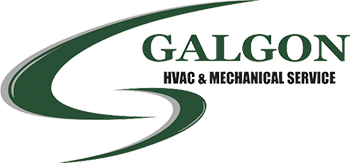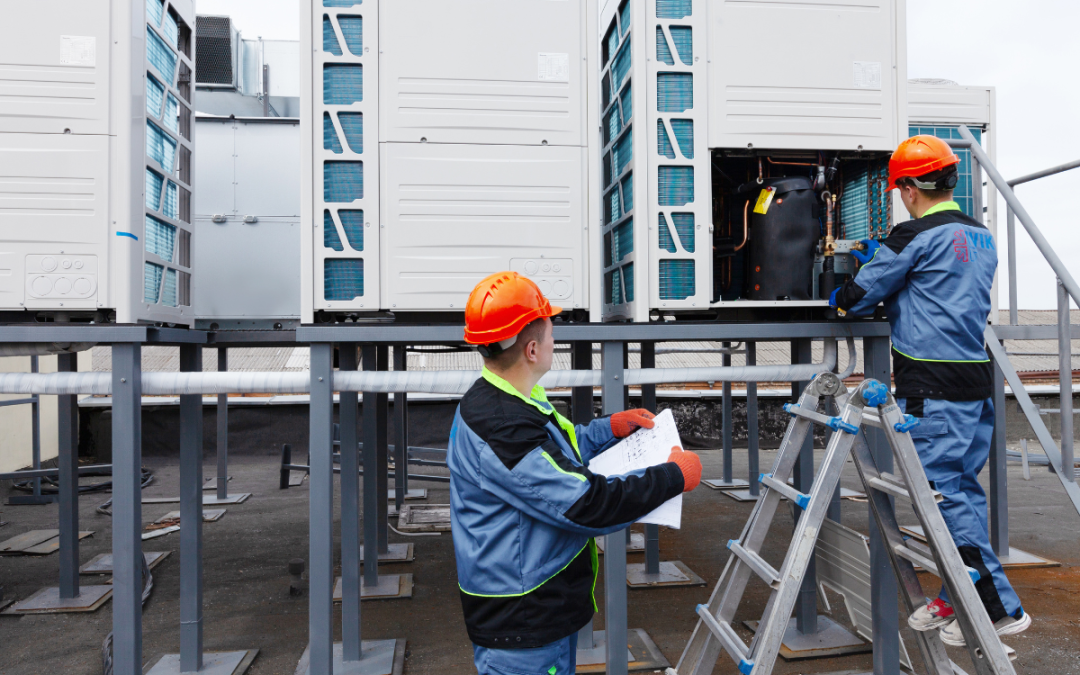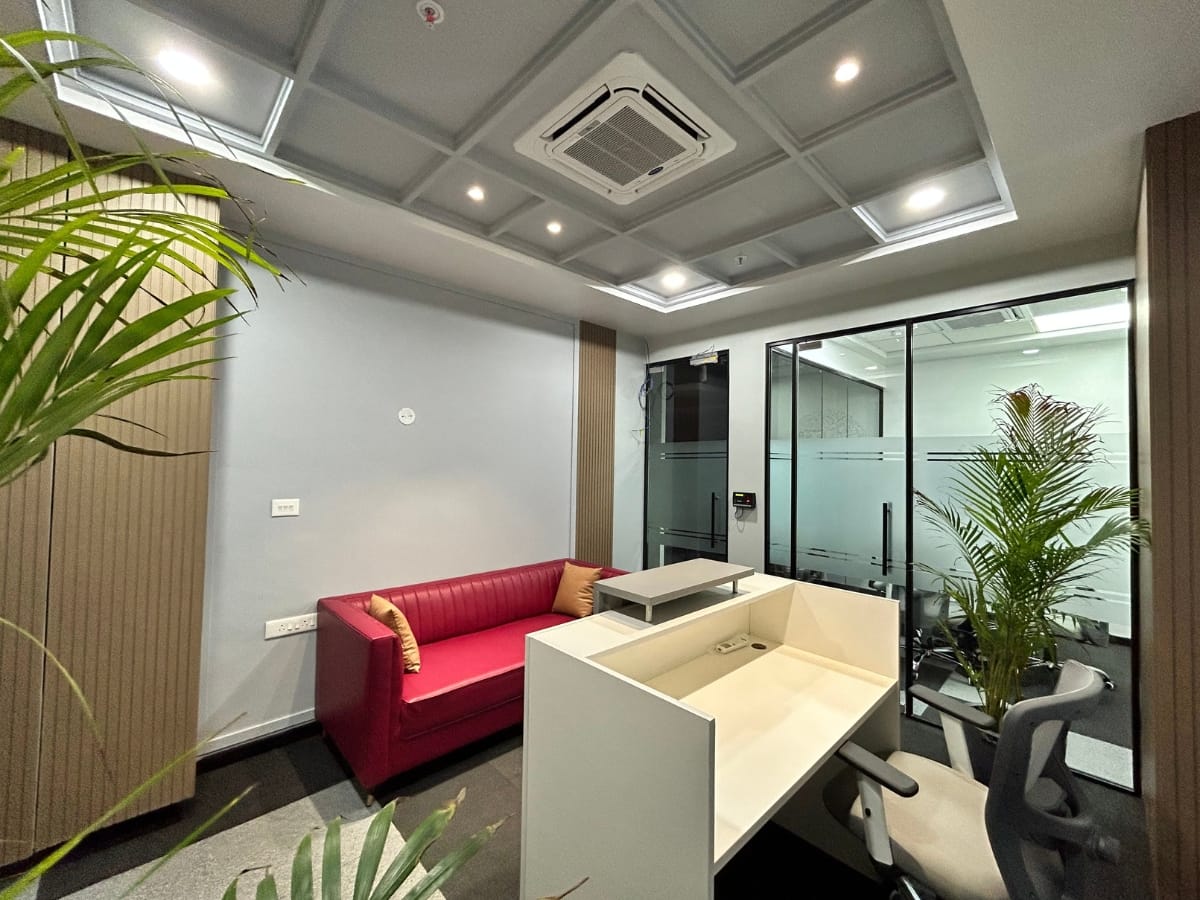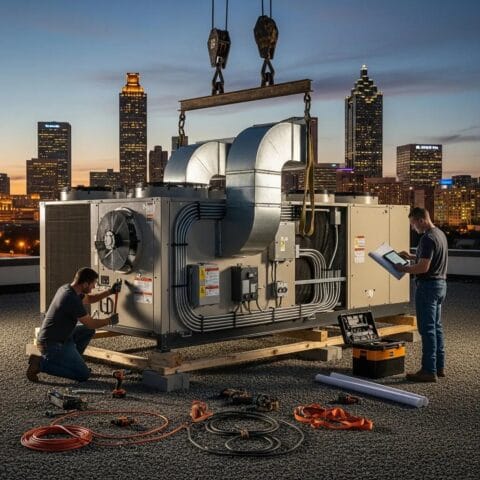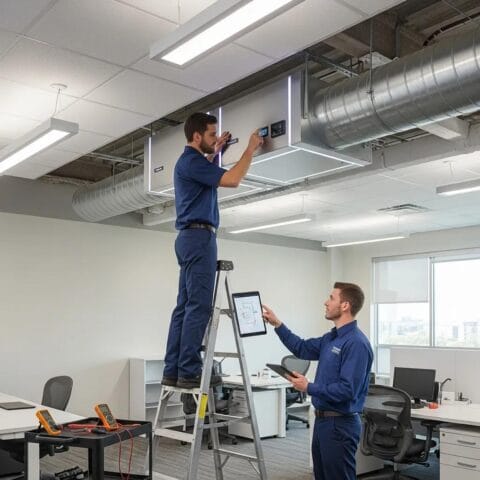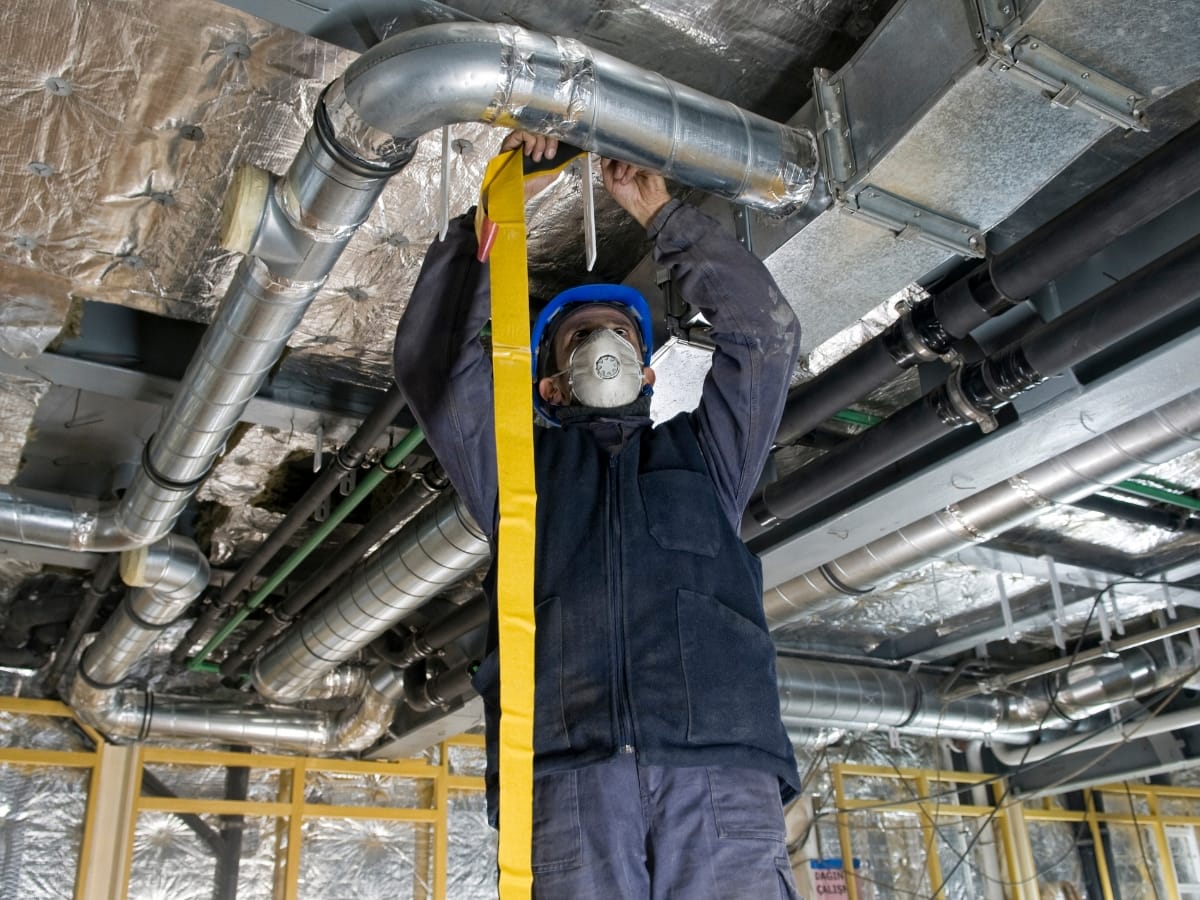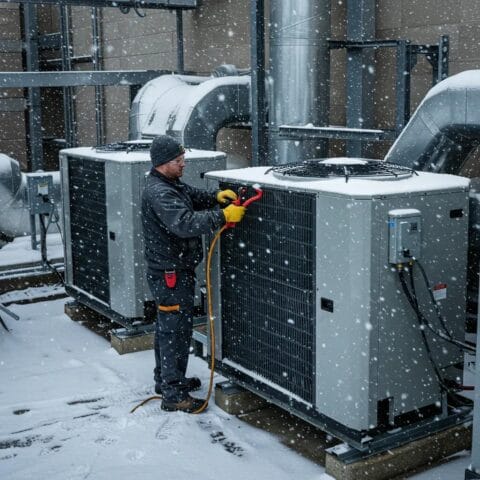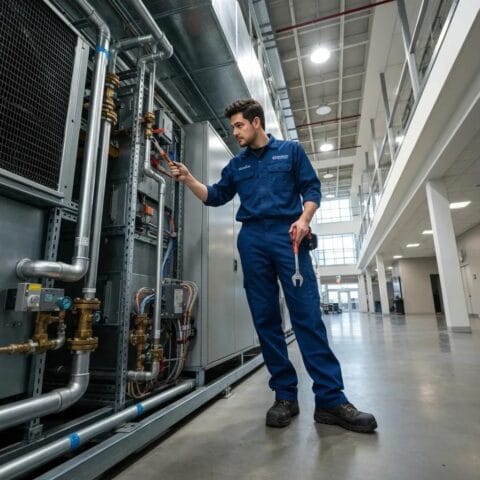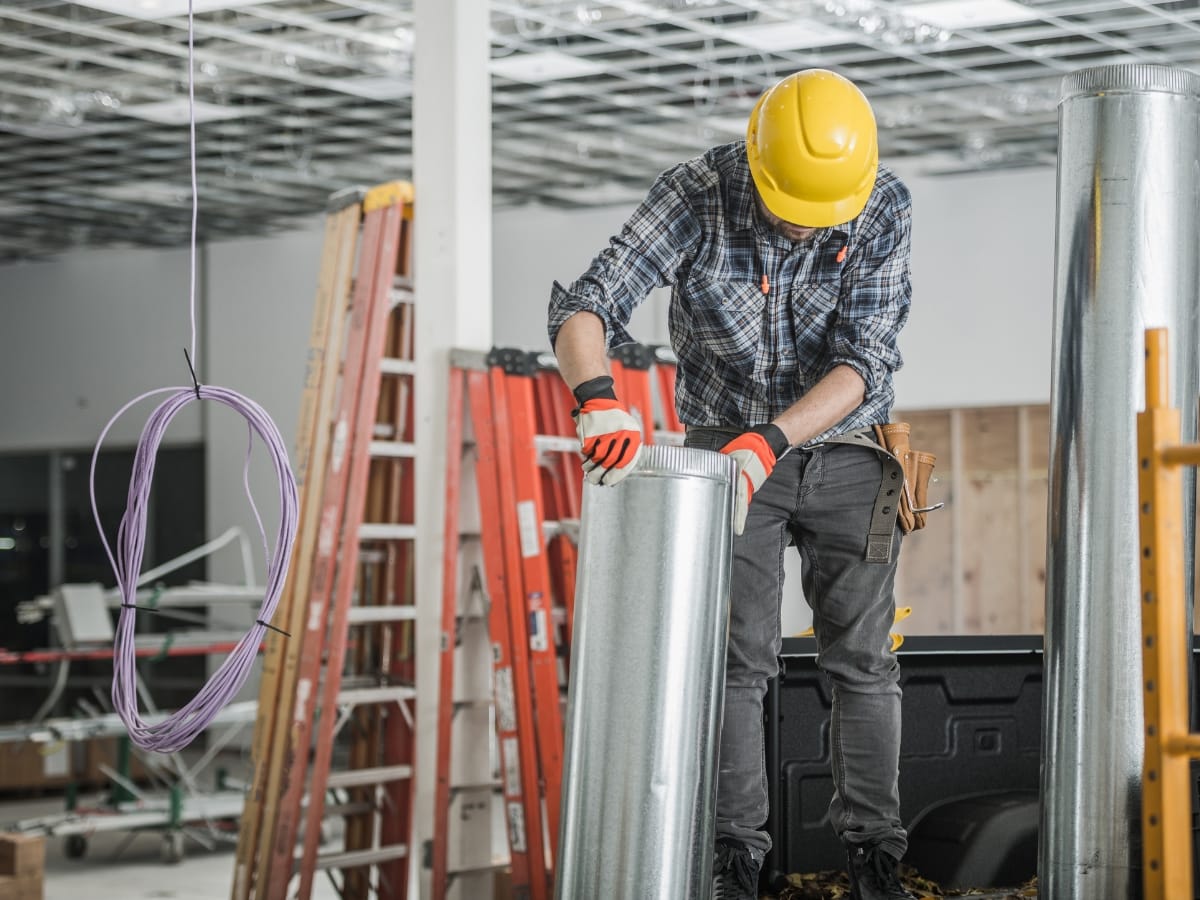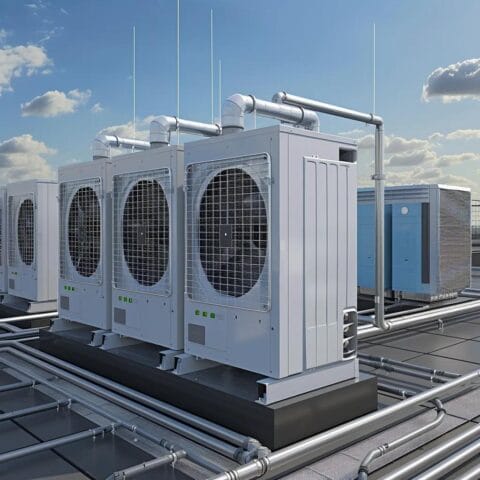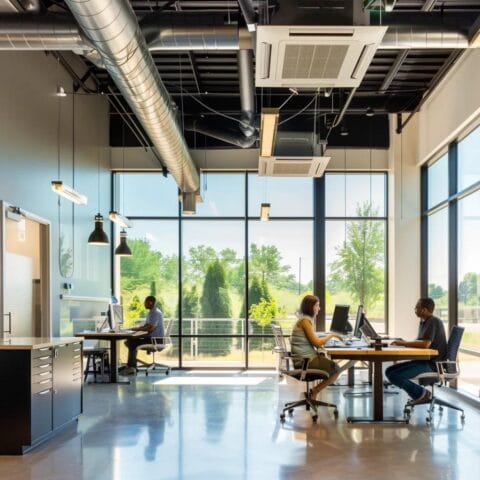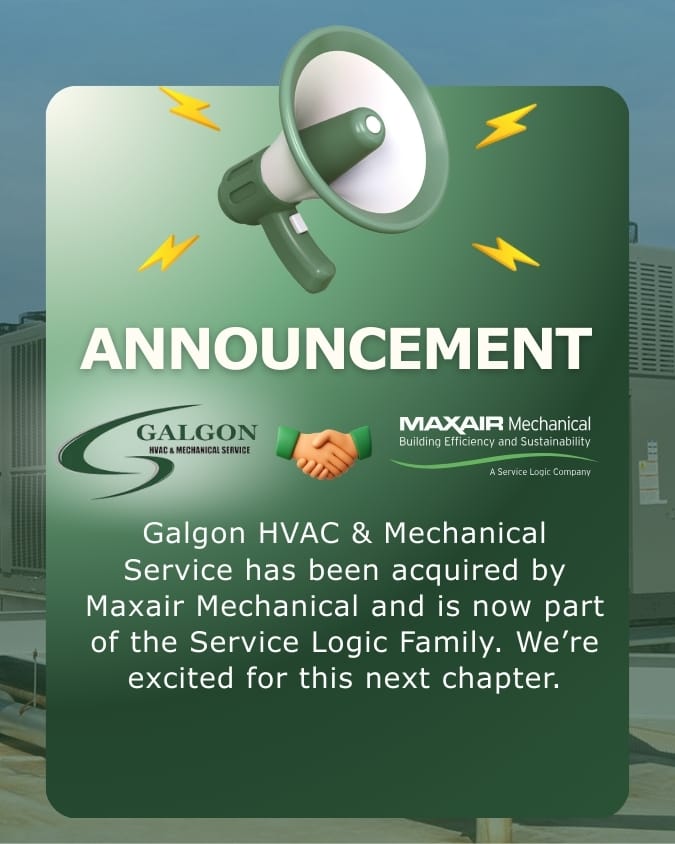In recent years, proper ventilation in commercial and industrial buildings has become increasingly important. In many countries, laws and regulations are in place that require employers to provide adequate ventilation, especially if dangerous or hazardous conditions exist. But ventilation is not just about meeting legal requirements – businesses should also consider air quality, energy efficiency, and comfort of those who work in the building.
This blog post delves into the importance of proper ventilation in commercial and industrial buildings, discussing how businesses can create a healthy, energy-efficient, and comfortable environment for their employees. We’ll explore the different types of ventilation systems and look at solutions to improve ventilation. We’ll also identify the potential benefits of good ventilation for the long-term health of the business.
With the right ventilation strategy, businesses can ensure the safety and well-being of their employees, while saving money on energy costs. So, let’s dive into the importance of proper ventilation in commercial and industrial buildings and discover how businesses can get the most out of their ventilation infrastructure.
How To Ensure Good Air Quality With Proper Ventilation
Types Of Ventilation Systems In Commercial And Industrial Buildings
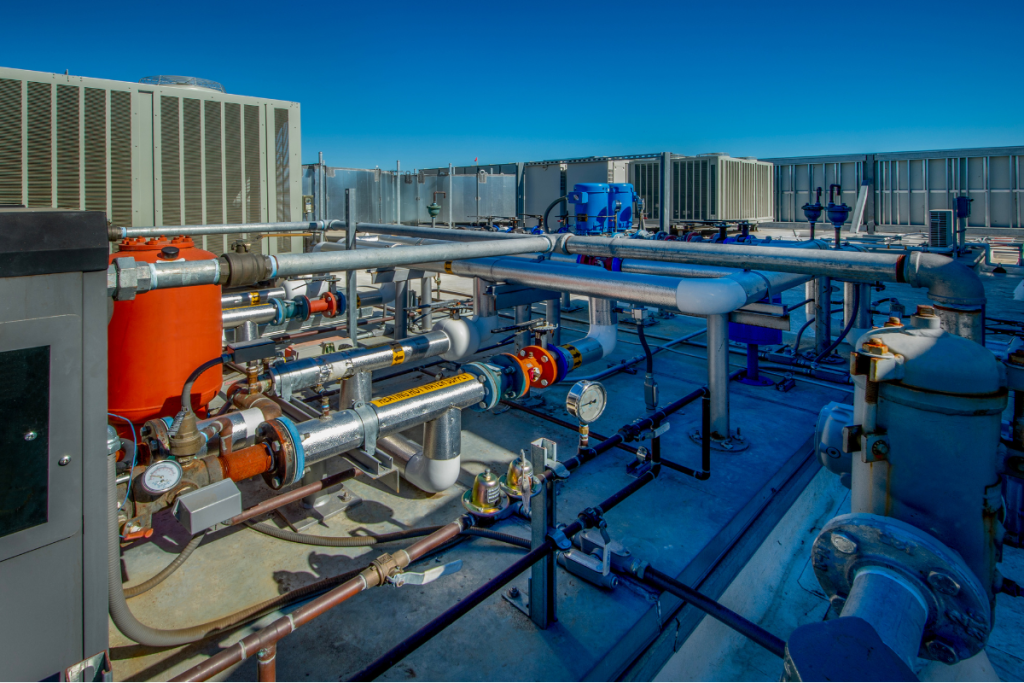
Ventilation systems are an essential component of any commercial or industrial building, as they are responsible for providing clean and healthy air to the occupants of the space. Proper ventilation helps to reduce indoor air pollution, maintain comfortable temperatures, and reduce energy costs. There are several types of ventilation systems available for commercial and industrial buildings, each with its own benefits and drawbacks.
- Forced Air System: The most common type of ventilation system is the forced air system, which uses an air handler to move air through the building. This system is typically used in commercial and industrial buildings, as it is easy to install and maintain. The downside to this type of system is that it can be expensive to operate, as the air handler needs to be run often in order to ensure proper airflow.
- Natural Ventilation System: Another type of ventilation system is the natural ventilation system, which uses natural air movement to bring fresh air into the building. This system is typically used in industrial buildings, as it is a cost-effective way to provide adequate ventilation. The downside to this system is that the air quality can vary, depending on the outside temperature and humidity levels.
- Mechanical Ventilation System: The last type of ventilation system is the mechanical ventilation system, which uses a fan to move air through the building. This system is typically used in commercial buildings, as it is more efficient than the forced air system. The downside to this system is that it requires more maintenance than the other two types of systems.
No matter what type of ventilation system is used, it is important to ensure the proper airflow. Proper ventilation helps to reduce indoor air pollution, maintain comfortable temperatures, and reduce energy costs. By investing in the right type of system, commercial and industrial buildings can ensure a safe and healthy environment for their occupants.
Benefits Of Proper Ventilation
One of the most important aspects of any commercial or industrial building is proper ventilation. Not only does it ensure the safety and health of employees, but it also helps to maintain the temperature and humidity of the building. Proper ventilation also helps to reduce the amount of dust, debris, and other contaminants in the air, so that workers can breathe easier.
There are many benefits to having proper ventilation in a commercial or industrial building. Here are some of the key advantages:
- It improves air quality: Proper ventilation helps to remove dust and other particles from the air, making it safer and healthier to breathe. It can also help to keep the temperature and humidity in the building at a comfortable level, making it more pleasant to work in.
- It reduces moisture and mold: Poor ventilation can cause the air to become stagnant, which in turn can lead to an increased amount of moisture in the air. This can encourage the growth of mold and mildew, which can cause health problems for workers. Proper ventilation helps to reduce this risk.
- It helps to reduce energy costs: Proper ventilation can help to regulate the temperature of a building, meaning that the AC or heating system does not need to work as hard. This can help to reduce energy costs, as less energy is being used.
- It can help to improve productivity: Good ventilation can help to improve concentration, as workers are not being exposed to uncomfortable temperatures or bad air quality. This can lead to increased productivity.
In conclusion, there are many benefits to having proper ventilation in commercial and industrial buildings. By providing healthy air quality, reducing energy costs, and improving productivity, proper ventilation can have a huge impact on the long-term success of a business.
Common Issues Associated With Poor Ventilation
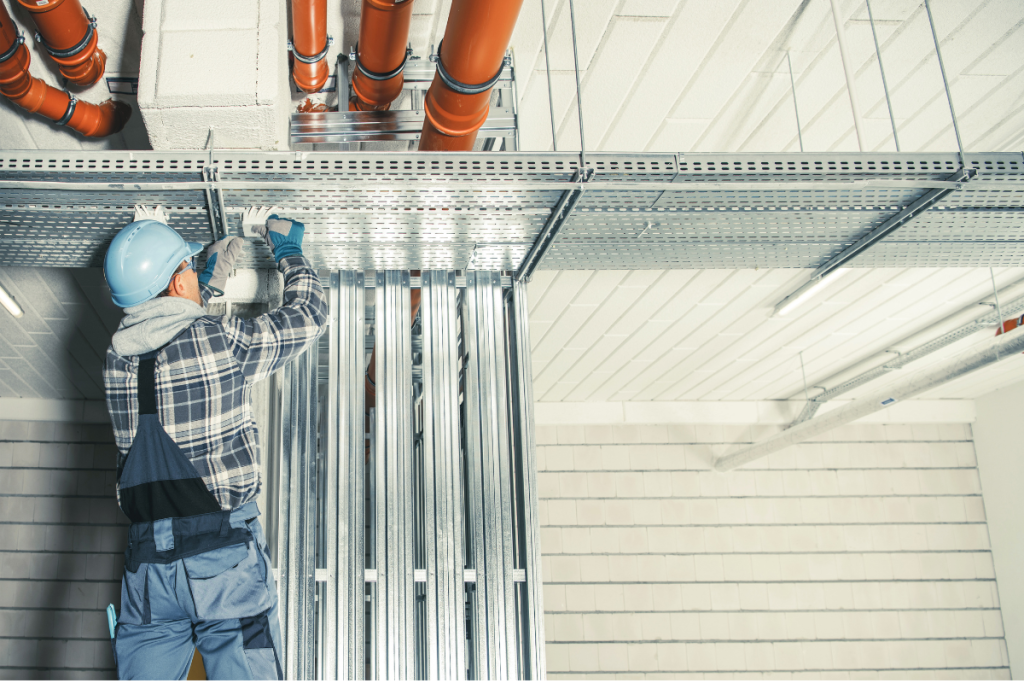
Poor ventilation in commercial and industrial buildings can be a major issue, leading to a wide range of problems. It’s important to have proper ventilation in these environments to ensure the safety, health, and comfort of those working or frequenting them. Here are some of the most common issues associated with poor ventilation:
- Low Air Quality: Without proper ventilation, air quality can be reduced, leading to health issues. Poor air quality can cause respiratory problems, migraines, fatigue, and general discomfort.
- Mold and Mildew: Poor ventilation can lead to an increase in humidity, which can allow mold or mildew to grow. This can be an issue both indoors and outdoors and can lead to damage to buildings, equipment, and furniture.
- Odors: Without proper ventilation, odors can become trapped in an area, making it unpleasant. This can lead to a decrease in employee productivity and an increase in health complaints.
- Uncomfortable Working Conditions: Poor ventilation can make a room too hot or too cold, which can make work or living conditions uncomfortable. It can also contribute to noise problems, as sound can be trapped.
Proper ventilation is necessary to maintain a healthy and safe environment in commercial and industrial buildings. It’s important to regularly inspect and maintain ventilation systems to ensure they are working properly. Proper ventilation systems can help reduce the risk of health problems, property damage, and uncomfortable working conditions.
Solutions For Improving Ventilation In Commercial And Industrial Buildings
Improving ventilation in commercial and industrial buildings is a crucial step to ensure the safety and well-being of occupants. Proper ventilation helps to reduce the levels of humidity, airborne pollutants, and other hazardous materials. Here are some solutions for improving ventilation in commercial and industrial buildings:
- Install Energy-Efficient Ventilation Systems: Installing energy-efficient ventilation systems helps to reduce the operating costs of the building, while also improving the ventilation. These systems use sensors to detect the climate and adjust the ventilation accordingly.
- Utilize Natural Ventilation: Natural ventilation helps to reduce energy consumption and improve air quality by bringing in outside air and expelling stale air. This can be achieved by opening windows and doors or installing intake and exhaust fans.
- Utilize HVAC Systems: Heating, ventilation, and air-conditioning systems (HVAC) provide proper ventilation and maintain comfortable indoor temperatures. Properly maintained HVAC systems ensure that the ventilation system is working correctly and that the air is of good quality.
- Upgrade Air Filters: Regularly changing and upgrading air filters helps to reduce the amount of dust, pollen, and other particles in the air. This helps to improve indoor air quality and reduce the risk of health problems.
By utilizing the solutions mentioned above, commercial and industrial buildings can improve their ventilation, thus ensuring the safety and well-being of their occupants. Proper ventilation is essential for providing a comfortable and healthy indoor environment.
Conclusion On The Importance Of Having Good Ventilation
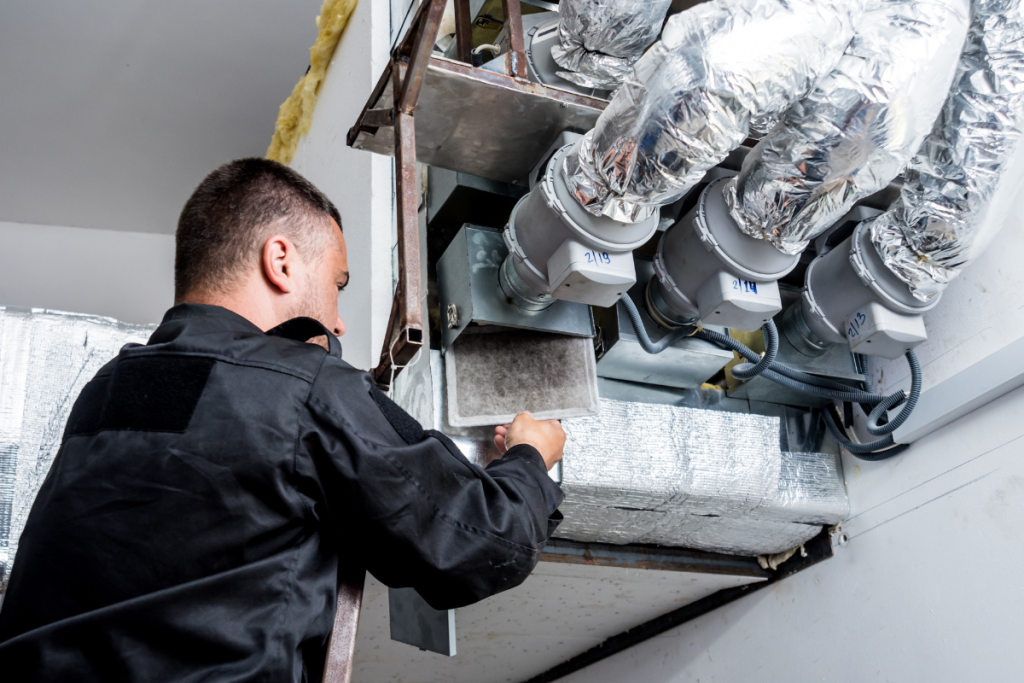
Proper ventilation is essential in commercial and industrial buildings due to the various hazardous gases and particles that occur in these environments. Without proper ventilation, the air quality of the building can suffer and create uncomfortable and potentially dangerous conditions for the people and animals that occupy the space.
When it comes to proper ventilation, it is important to remember that not all ventilation systems are equal. Different types of ventilation systems have different capabilities and benefits that can affect the air quality of a building. Galgon HVAC specializes in designing and installing ventilation systems that are tailored to each individual building’s needs.
The importance of proper ventilation cannot be overstated, as it plays a critical role in maintaining a safe and healthy environment in any building or workplace. Not only does it help to eliminate pollutants and keep the air clean, but it can also help reduce the potential for health issues and accidents due to poor air quality. Proper ventilation can also reduce stress and fatigue among employees, as well as reduce the risk of fire due to clogged ducts and other problems.
For commercial and industrial buildings, proper ventilation is essential for the safety and well-being of those who work in them. If you need help with proper ventilation, contact Galgon HVAC of Atlanta today. We have years of experience in designing and installing ventilation systems that are tailored to each individual building’s needs. With our help, you can ensure that the air quality of your building is up to the highest standard.
